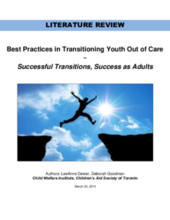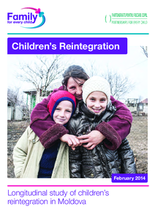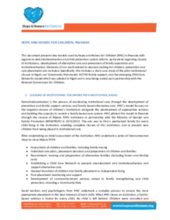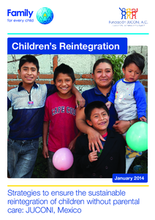Displaying 881 - 890 of 991
La investigación es un trabajo en conjunto entre DONCEL, GUÍA EGRESO y&
This literature review examines literature on the best practices for youth aging out of care that indicate successful outcomes for them as adults.
This paper discusses participatory research with young people who are leaving public care in Finland to begin independent lives.
This paper presents the findings of a survey of Russian care leavers. The emphasis is on care leavers' experiences of the Russian institutional care system, and the issues that impacted on their postcare transition to adulthood.
In this review, the authors highlight evidence drawn from research in Australia, the United Kingdom, Canada, Ireland, and the United States, on the impact of growing up in care beyond the early twenties.
This important report documents a 22-month longitudinal study of the reintegration of children in residential care in Moldova.
This document presents key models used by Hope and Homes for Children (HHC) in Rwanda with regards to deinstitutionalisation and child protection system reform, particularly regarding closure of institutions, development of alternative care and prevention of family separation and institutionalisation.
This paper reports on the Mexican arm of Family for Every Child’s three-country study on strategies to ensure the sustainable reintegration of children without parental care.
This qualitative study explored the experiences of adults who had lived in group home care as adolescents and transitioned back into the community at the end of their treatment.
This report is based on a synthesis of eight assessments of the implementation of the Guidelines for the Alternative Care of Children (“the Guidelines”) in Benin, Gambia, Kenya, Malawi, Tanzania, Togo, Zambia and Zimbabwe.





